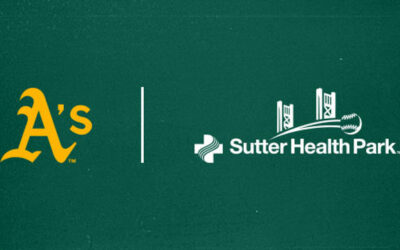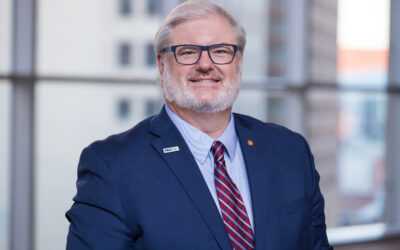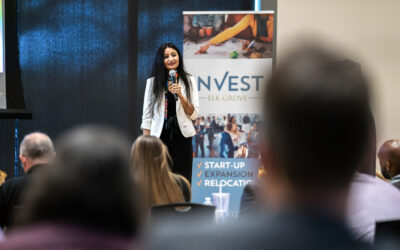FEATURED, INNOVATION
America es Fork-to-Farm Capitol

Die Sacramento Kings haben sich zu einem hyper-lokalen Lebensmittel-und Nachhaltigkeits-Programm für die Arena Restaurants und Lebensmittel-Operationen begangen. (Bild mit freundlicher Genehmigung von Sacramento Kings)
14. Dezember 2016
Amerikas Fork-to-Farm Capitol? Since the opening of the Golden 1 Center this past October, Sacramento startup California Safe Soil has been collecting food scraps from the King’s food vendors and turning it into a liquid fertilizer. The collection of uncooked foods by the arena is part of a Farm-to-Court-Philosophie Kings Chairman and Owner, Vivek Ranadivé, released earlier this year. In it, he identified 10 guiding principles that would govern all food, sustainability, sourcing and recycling activities at Golden 1 Center. "mit unserer neuen Arena, Golden 1 Center, sehen wir eine Gelegenheit, direkt zu Ehren der Menschen und Werte von Sacramento", schrieb er. One of the pledges in that statement includes implementing a new waste management plan that would substantially reduce the landfill footprint of the arena. California Safe Soil uses food that would otherwise be buried in a landfill to help farmers grow more crops with less water and chemical fertilizers. "Sacramento ist America's Farm-to-Fork Capitol." Wir wollen, dass Sacramento America's Fork-to-Farm Capitol als gut, "California Safe soil CEO Dan Morash sagt." The Kings also announced a plan to source 90 percent of culinary ingredients from growers and producers operating within a 150-mile radius of Golden 1 Center with the support of executive chef Michael Tuohy of Legends Hospitality.
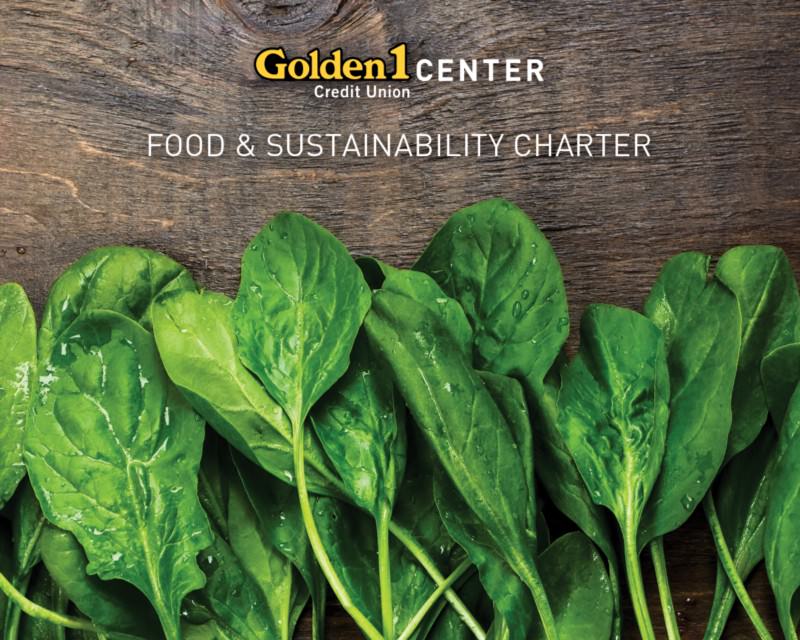
Die Sacramento King es Food and Sustainability Charter enthält Bestimmungen für die Beschaffung 90 Prozent der kulinarischen Zutaten aus einem 150-Meile Radius von Golden 1 Center und die Verringerung der Arena Deponie Fußabdruck durch nachhaltige Abfallwirtschaft Praktiken. (Bild mit freundlicher Genehmigung von Sacramento Kings)
Das Problem der Lebensmittelverschwendung
Food waste in the United States is a $165 Milliarden-Dollar-Problem. Bis zu 40% der Lebensmittel, die in den Vereinigten Staaten produziert wird, wird nie gegessen, sondern ist einfach verloren, auf jeder Ebene der Nahrungskette. Supermärkte verlieren schätzungsweise $15 Milliarden in unverkauften Obst und Gemüse allein, nach dem USDA. Where does all this wasted food wind up? In landfills, mostly. In California, 18% of all the trash that goes to landfills comes from food scraps. The problem is not simply one of space. Decomposing food scraps also emit methane, a short-lived, but particularly potent greenhouse gas. Beginnend im vergangenen April, in dem Bemühen, Methan-Gas-Emissionen von Deponien zu reduzieren, ein neues staatliches Recht (AB 1826) will require businesses in California to recycle their organic waste. The law will also contribute to a statewide goal of Reduzierung, Recycling oder Kompostierung von 75% des organischen Abfalls um 2020. The California Air Resources Board recently vorgeschlagenen to ban the disposal of organic wastes in landfills completely by 2025. How to handle that waste is an open question. According to the California Department of Resources Recycling and Recovery (CalRecycle), landesweite Kapazität ist nur ein Drittel bis zur Hälfte der 10 Millionen Tonnen organische Abfälle, die Wind in Kalifornien Deponien jedes Jahr.
Schließen der Schleife in Sacramento
California Safe Soil owns the intellectual property rights and a few patents for a technology that deals with both of these problems by creating a liquid fertilizer from food waste in a matter of hours. The company’s founder and CEO, Dan Morash, had seen all kinds of different technology in renewable energy and adaptive reuse of waste over the course of a 30-year career as an investment banker on Wall Street. “There weren’t any good technologies for food waste recycling,” he says. When the technology for his product came along, he decided to locate his business in Sacramento for three main reasons. One, the $1.7 billion agricultural market in California, which consists primarily of specialty crops such as fruits, vegetables and nuts. The company decided that local growers of higher margin crops would be more likely to invest in a new product that promises better growth. Ortung neben der University of California in Davis, einer der führenden landwirtschaftlichen Universitäten des Landes, sofern Forschung unterstützt sowohl die Sicherheit des Produkts und seine Auswirkungen auf das Wachstum der Pflanzen. The third main reason to set up here was the capital. “If you plan on building any kind of project in the State of California, you had better know your way around the regulatory situation,” Morash says. The company spent the last four years building these relationships and demonstrating their technology in a pilot facility in West Sacramento, before relocating in October to a new commercial-scale facility at the McClellan Business Park.

California Safe Soil sammelt die ungegessenen Speisereste aus Lebensmittelgeschäften und jetzt die Golden 1 Center Arena und schafft einen flüssigen Dünger aus ihm mit einem patentierten enzymatische Verdauung Technologie. (Bild mit freundlicher Genehmigung von California Safe Soil)
Vom Supermarkt zum Boden
California Safe Soil has long-term contracts with all 225 Save Mart supermarkets and several other California grocery chains, including Safeway, Inc., Nugget Markets, Inc., Whole Foods and Grocery Outlet. The company collects the unsold produce, meat, deli and bakery food wastes within two days of being removed from supermarket shelves. In the plant, this waste is ground up, heated and mixed with enzymes before being pasteurized for safety. "die Eigenkapitalanforderungen sind relativ bescheiden, verglichen mit den alternativen Technologien wie Anaerobe Verdauung und Kompostierung, mit einem weitaus kleineren ökologischen Fußabdruck und einem wertvolleren Fertigprodukt", Wissenschaftler der University of California Davis berichtete im vergangenen Jahr im Journal of Cleaner Production. "da der Prozess keine signifikante Luft Emission, flüssiges Abwasser, feste Abfälle oder lästige Gerüche hat, ist es möglich, alle notwendigen Betriebsgenehmigungen in städtischen Gebieten zu erhalten." The whole process takes only a few hours, rather than months, like it does in traditional compost, and results in a liquid, organic fertilizer that farmers buy to grow more fruits and vegetables. In field trials, farmers have reported yield increases up to 33%, while using up to 25% less water and reducing the need for costly nitrogen-based fertilizers.

Pflanzen gegeben California Safe Soil es Flüssigdünger wachsen mehr Wurzeln, die Ihnen hilft, nehmen mehr Wasser und Dünger aus dem Boden, die Erträge zu erhöhen und Abfälle zu reduzieren. (Bild mit freundlicher Genehmigung von California Safe Soil)
Wie es funktioniert
The company’s flagship product, Harvest-to-Harvest (H2H), can be applied to crops using existing irrigation drip lines. The fertilizer works by stimulating the growth of a diverse population of microbes in the soil, causing the plant to grow more roots, take up more water and fertilizer, and increase flowering and fruiting. The reality underground is much more complex and is the result of a complex web of interrelationships between the billions of microbes living in soil and the plant roots. Plants get carbon from the atmosphere, during photosynthesis, and use it to create the molecular material they need to grow. However, scientists believe that nearly one-third of that carbon is never used, but is released into the soil through the plant’s roots. If this sounds like a loss, it’s not. The microbes that feed on these nutrient-rich secretions can suppress pathogens in soil, break organic matter into nutrients plants can use, and stimulate root growth, among other things. Das Ziel der Kompostierung, dann ist es, diesen natürlichen Prozess zu replizieren und Energie zu sparen, indem einige dieser organischen Materialien wieder in den Boden. H2H einfach macht dies schneller geschehen.
Eine goldene Gelegenheit
While most of California Safe Soil’s existing clients are local supermarkets, the company has ambitions to provide their service nationwide, throughout the food supply chain. “One of the appeals of Golden 1, in addition to it being such a landmark for the City of Sacramento, is that it demonstrates one of many other ways that we can make this program work,” says Morash. The Sacramento Kings discovered California Safe Soil at a Startup-Wettbewerb the team hosted earlier this year.
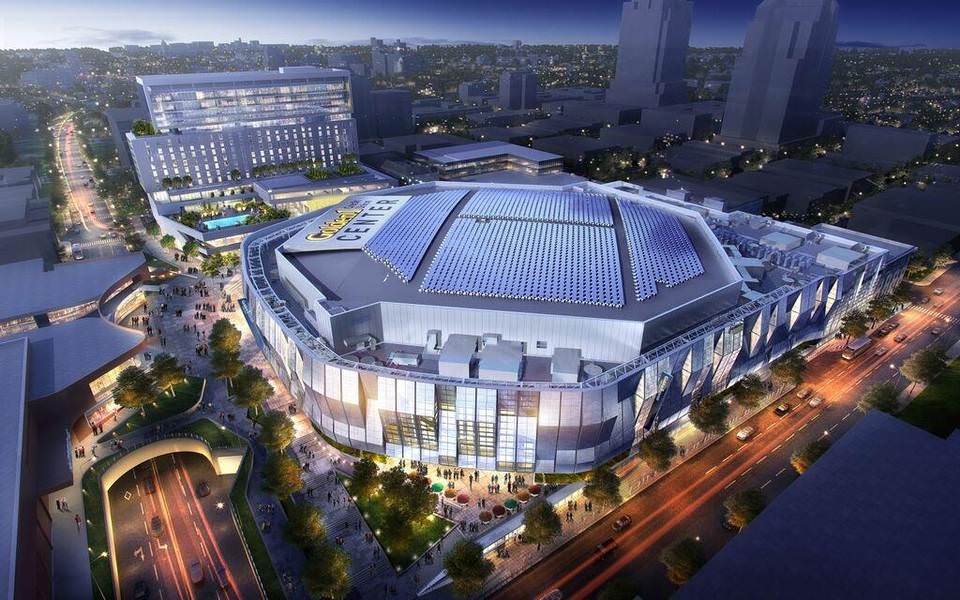
Rendering des goldenen 1-Centers. (Bild mit freundlicher Genehmigung von Sacramento Kings)
Die Könige Franchise, sagt Chairman Ranadivé, kann "eine Plattform für eine gute, ein Unifier der Gemeinschaft und, am besten, ein Symbol für die erstaunliche Region das Team ruft nach Hause." “When you’re running a league like the NBA, and you’re running a league like the Sacramento Kings, you’re very visible,” says Dr. Allen Hershkowitz, Co-Founder of the NBA Green program, Green Sports Alliance and Green Sports International. “Look at it this way. Billions of dollars are spent every year to advertise with sports venues. Why do companies do that? They do that because they must assume that by affiliating with sports somehow, they are going to influence the culture of the marketplace.” Hershkowitz und die Sacramento Kings vor kurzem eine Präsentation für alle 30 NBA-Team Präsidenten über die Vorteile der Nachhaltigkeit. “The situation we’re in is the result of literally hundreds of millions of ecologically ignorant decisions that have been made for centuries. Now we need hundreds of millions of ecologically intelligent decisions to move us forward. And that’s what this represents. The Kings are doing their part,” says Hershkowitz.
Related Articles
Sutter Health Park to Host A’s Baseball
Today, the Sacramento Kings, majority owner of the five-time Pacific Coast League champion Sacramento River Cats, announced that Sutter Health Park will host the A’s for three MLB seasons starting in 2025 with an option for a fourth – ahead of the team’s transition to Las Vegas.
David Sander (City of Rancho Cordova)
David Sander is the mayor of Rancho Cordova and a member of GSEC’s Board of Directors. Learn more about why he values economic development, working with GSEC and living and working in the Greater Sacramento region in the Q&A below.


